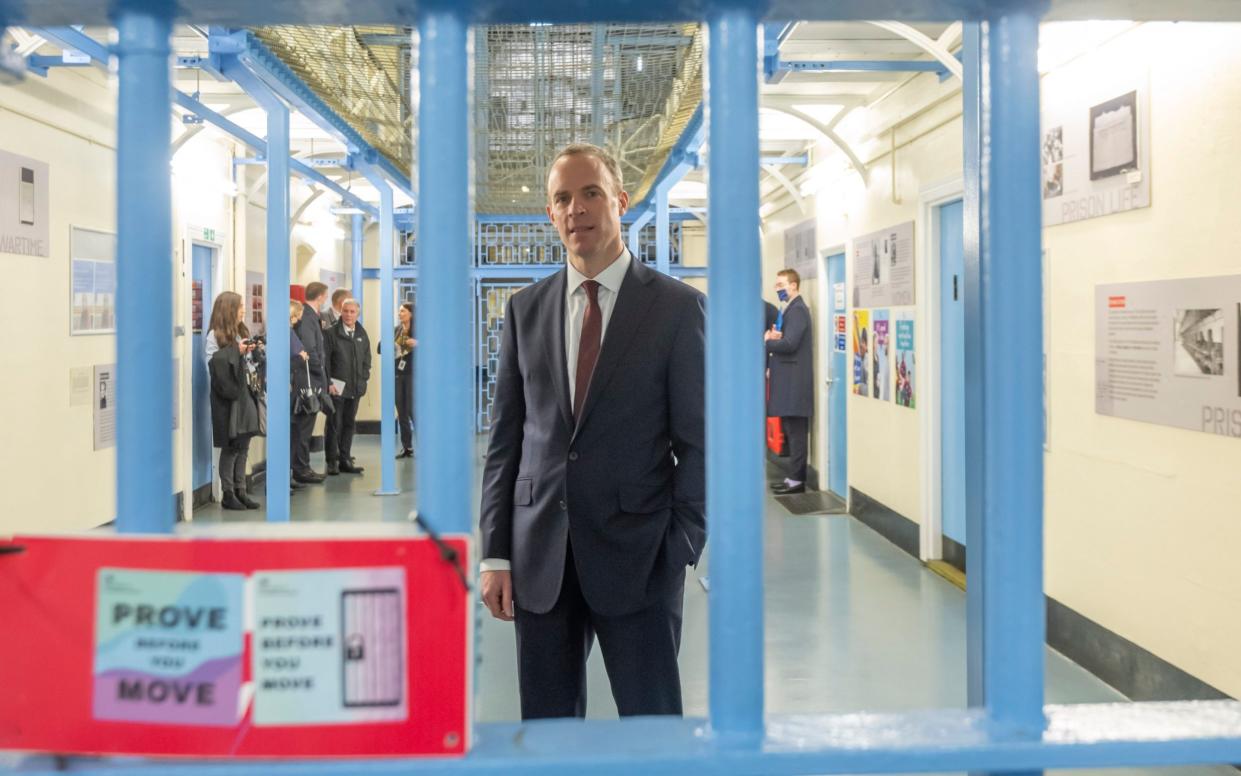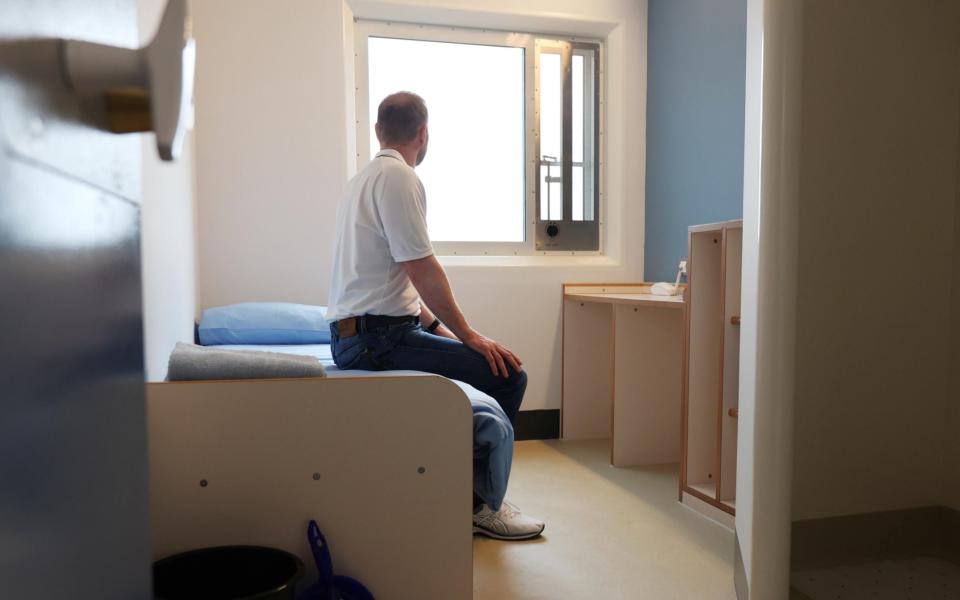Prisoners aren’t ‘residents’ in ‘rooms’, says Dominic Raab as he bars woke terms in jails

Prisoners must no longer be called “clients” or “residents”, Dominic Raab said as part of a plan to get tough on “woke” jails.
The Justice Secretary has issued guidance to prison governors and their staff that they should stop using “politically correct” terms for offenders because it undermines public confidence that they are being punished for their crimes.
Instead, he has told them that inmates should be called “prisoners” or “offenders” rather than “residents”, “clients” or “service users”.
In addition, cells should not be labelled “rooms”, as they are known in two of the newest and largest jails in England and Wales.
The woke language is part of an attempt by officials to avoid “labelling” people as offenders in order to help them move on from their lives of crime.
However, a government source said: “Wishy-washy, politically-correct phrases like ‘room’ or ‘client’ dent public confidence in our ability both to reform and to punish those who have broken the law and caused harm to others. The Justice Secretary believes in calling a prisoner a ‘prisoner’.
“The Justice Secretary is determined that our prisons up their game in rehabilitating prisoners to drive down reoffending, cut crime and protect the public.”

The use of “residents” is commonplace in guidance in some prisons across England and Wales. Probation service manuals have rebranded prisoners as supervised individuals and service users.
The alternative language has even been used by Jo Farrar, the chief executive of HM Prison and Probation Service, who last year promised funding to governors for in-cell activities and technology to support “residents” in maintaining family ties.
At HMP Berwyn in Wrexham, Wales, cells have been renamed “rooms” and prison blocks “communities”. Prisoners are “men”, holding cells are “waiting rooms”, inmates are provided with laptops when they arrive, and there are tea and sandwich facilities.
A similar set-up is in place at HMP Five Wells, a new “super prison” in Wellingborough, where offenders are “residents”, cells are “rooms” and there are no bars on the windows, the first of its kind in the UK.

The governor has been renamed the “director” and aims to be on first name terms with all inmates, who all have tablet computers and showers in their cells, as well as access to workshops, ranging from hairdressing and bike repair to forklift truck maintenance and waste recycling.
Mr Raab’s move was welcomed by Ian Acheson, a former prison governor and government adviser on extremism in jails.
“Describing prisoners as ‘residents’ in places where you would sometimes hesitate to put livestock is just sophistry,” he said.
“Instead of parroting fashionable orthodoxies, the prison service should concentrate its efforts on safe, ordered and purposeful prisons with staff clearly and confidently in charge. You can’t change people’s lives and stop them from making further victims with labels.”
Jailed terrorists lose their right to socialise
The move came just a day after the Justice Secretary unveiled proposals for terrorists in prison to lose their human rights to socialise. This was as part of an expansion of the use of segregated “jails within jails” to prevent dangerous offenders from radicalising other inmates.
There could also be new offences to combat terrorist offences in jails in England and Wales that are currently going unpunished.
These will make it easier to prosecute prisoners who radicalise fellow inmates, adorn their cells with terrorist posters or attack prison guards rather than treat them as disciplinary offences.
Possession of radical material, preaching extremism and inciting violence are likely to be amongst the offences targeted under new legislation expected to be introduced within the next year.
A government source said: “Ministers are right to be looking closely at changing the law and getting a firmer grip on would-be terrorists in our jails. It’s madness that at present they could plot in the ‘privacy’ of their cells with impunity from any criminal sanction.”

 Yahoo News
Yahoo News 
